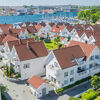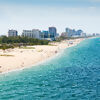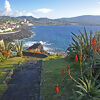21 Nights | Europe
About Oslo, Norway
You will visit the following 10 places:

Stavanger
Stavanger is a city and municipality in Norway. The urban area of Stavanger stretches across many neighboring municipalities, making it the third largest city in Norway by total urban population with 197 852 inhabitants as of January 1, 2011. Stavanger's core is to a large degree 18th- and 19th-century wooden houses that are protected and considered part of the city's cultural heritage. This has caused the town centre and inner city to retain a small-town character with an unusually high ratio of detached houses, and has contributed significantly to spreading the city's population growth to outlying parts of Greater Stavanger. The city's rapid population growth in the late 20th century was primarily a result of Norway's booming offshore oil industry. Today the oil industry is a key industry in the Stavanger region and the city is widely referred to as the Oil Capital of Norway. Multiple educational institutions for higher education are located in Stavanger. The largest of these is the University of Stavanger.

Oslo
Oslo is a county and municipality, as well as the capital and largest city in Norway. Oslo was established as a municipality on 1 January 1838. Founded around 1048 by King Harald III "Hardraade" of Norway, the city was largely destroyed by fire in 1624. The Danish–Norwegian king Christian IV moved the city, rebuilding it closer to Akershus fortress, as Christiania (briefly also spelt Kristiania). In 1925, the city reclaimed its original Norwegian name, Oslo. The diocese of Oslo is one of the five original dioceses in Norway, which originated around the year 1070.

The Convent Amsterdam
Amsterdam is the capital of the Kingdom of the Netherlands. It is the country's largest city and its financial, cultural, and creative centre. Many large Dutch institutions have their headquarters there, and seven of the world's 500 largest companies, including Philips and ING, are based in the city. In 2012, Amsterdam was ranked the second best city in which to live by the Economist Intelligence Unit (EIU) and 12th globally on quality of living for environment and infrastructure by Mercer. Amsterdam derives its name from the city’s origin as “Dam” of river “Amstel”. In the past, the name was "Amstelredamme" which later changed as “Amsterdam”. The city is one of the most popular destinations in Europe, attracting over 7 million international travellers annually. The city is colloquially known as ''Venice of the North'' because of its lovely canals that criss-cross the city, its impressive architecture and more than 1,500 bridges. There is something for every traveller's taste here; whether you prefer culture and history, serious partying, or just the relaxing charm of an old European city!

Fort Lauderdale
Fort Lauderdale is a city in the U.S. state of Florida, 28 miles (45 km) north of Miami. The city is a popular tourist destination, with an average year-round temperature of 75.5 °F (24.2 °C), and 3,000 hours of sunshine per year. Greater Fort Lauderdale which takes in all of Broward County hosted 12 million visitors in 2012, including 2.8 million international visitors. The district has 561 hotels and motels comprising nearly 35,000 rooms. Greater Fort Lauderdale has over 4,000 restaurants, 63 golf courses, 12 shopping malls, 16 museums, 132 nightclubs, 278 parkland campsites, and 100 marinas housing 45,000 resident yachts. Fort Lauderdale is named after a series of forts built by the United States during the Second Seminole War. The forts took their name from Major William Lauderdale (1782–1838), younger brother of Lieutenant Colonel James Lauderdale. William Lauderdale was the commander of the detachment of soldiers who built the first fort.

Flåm

Ponta Delgada
Ponta Delgada is the largest municipality and administrative capital of the Autonomous Region of the Azores in Portugal. It is located on São Miguel Island, the largest and most populous in the archipelago. Cruise ships on repositioning voyages between North America and Europe often call there. Cruise-ship visitors to Ponta Delgada will often drive out into the countryside for visits to small villages and natural volcanic wonders. There's usually time afterward for a relaxed amble through the lovely port city, noted for its squares paved with black and white tiles, fabulous churches, and public buildings with their white-painted facades and brown-black volcanic stone trim. Given its dimension and the diversity of facilities and services it offers, Ponta Delgada is also the place for experiencing, a true gateway to the active discovery of the Azores Archipelago, with many things to do.

Horta

Zeebrugge

Justvik
Kristiansand, historically Christiansand, is a city and municipality in Norway. It is the fifth largest city in Norway and the municipality is the sixth largest in Norway. Tourism is important in Kristiansand, and the summer season is the most popular for tourists. Kristiansand Zoo and Amusement park is the largest zoo in Norway. It receives over 900,000 visitors every year. Markens Street is the main pedestrian street in downtown Kristiansand. Bystranda is a city beach located in Kvadraturen; in addition, Hamresanden beach is the longest beach in Kristiansand. Hamresanden Camping is a popular family camp during the summer season. The city hosts a free concert in downtown Kristiansand once every week in the summer. Outside the city is the industry park Sørlandsparken, which has Sørlandssenteret, the largest mall in Norway.

Cherbourg
Cherbourg-Octeville is a city and former commune situated at the northern end of the Cotentin peninsula in the northwestern French department of Manche. Due to its union, it is the most populated city in its department with 37,121 inhabitants making it the first city of the department before the Saint-Lô prefecture and the second in the region after Caen. Cherbourg-en-Cotentin is protected by Cherbourg Harbour, between La Hague and Val de Saire, and the city has been a strategic position over the centuries, disputed between the English and French. Cited as one of the "keys to the kingdom" by Vauban, it became, by colossal maritime development work, a first-rate military port under the leadership of Louis XVI and Napoleon, and holds an arsenal of the French Navy. A stopping point for prestigious transatlantic liners in the first half of the 20th century, Cherbourg was the primary goal of US troops during the invasion of Normandy in 1944. Along with its use as a military, fishing and yachting port, it is also a cross-Channel ferry port, with routes to the English ports of Poole and Portsmouth, the Irish port of Rosslare Harbour and St Helier on Jersey. Limited by its geographical isolation from being a great commercial port, it is nonetheless an important shipbuilding centre, and a working-class city with a rural hinterland.










